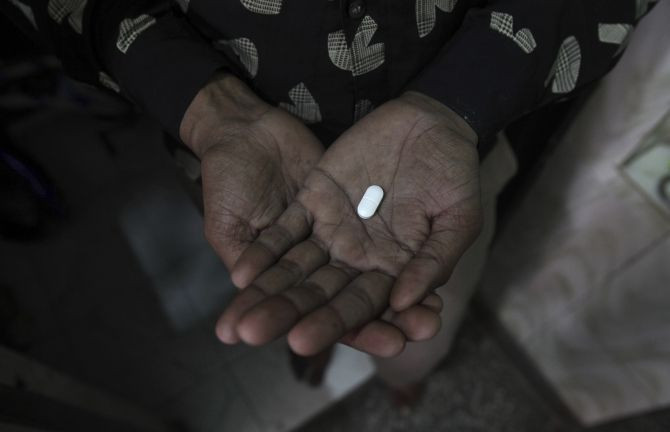Generic HIV Drugs Could Save Billions But Might Be Less Effective, Doctors Warn

While generic anti-HIV medication could save the U.S. nearly $1 billion in the first year they become available to American patients, doctors warn that the cheaper, non-branded drugs could be less effective than their pricey, brand-name counterparts.
After conducting mathematical analysis, researchers writing in the study published Jan. 15 in the Annals of Internal Medicine, found that if all eligible patients started or switched to a mostly generic regimen, the U.S. could save up to $920 million in just the first year.
However, researchers warned that the savings might come at the cost of more patients experiencing treatment failure.
Researchers said that findings from clinical trials revealed that generic drugs might be slightly less effective. They added that cheaper generics would also require patients to take three daily pills instead of one, which would increase the risk of some patients missing doses, leading to treatment failure.
The findings reveal that if all HIV-infected patients in the U.S. switched to the three-drug generic strategy, it would equal a lifetime savings of $42,500 per patient.
However, the reduced treatment efficacy of the generic regimen could result in 4.5 months of life lost per patient lifetime, researchers at the Massachusetts General Hospital warned.
"The switch from branded to generic antiretrovirals would place us in the uncomfortable position of trading some losses of both quality and quantity of life for a large potential dollar savings," lead author Dr. Rochelle Walensky of the MGH Medical Practice Evaluation Center said in a statement.
"By estimating the likely magnitude of these offsetting effects now -- before generic antiretrovirals actually hit the shelves -- we can confront our willingness as clinicians, patients and as a society to make these difficult choices," Walensky added.
Currently, the recommended treatment for newly diagnosed HIV patients is a single pill (Atripla) taken daily that combines three brand-name antiretrovirals: tenofovir (Viread), emtricitabine (Emtriva) and efavirenz (Sustiva).
A generic form of the HIV drug that has a similar mechanism of action to emtricitabine (Emtriva) became available in January 2012, and a generic version of efavirenz (Sustiva) is expected in the near future.
Researchers said that replacing two of the three brand-name drugs with generics could significantly reduce costs, but Walensky noted that saving money is a "trade-off" that many doctors will find "emotionally difficult" and even "ethically impossible" to recommend.
Researchers said that for patients who take their medications well and strictly follow the medical regimen, the generic option would be a little more complicated but just as effective as the standard regimen. On the other hand, those who missed a dose could face treatment failure.
Researchers said that this "trade-off" might be more acceptable if the financial savings from the use of generics were reallocated to other aspects of HIV treatment.
"Diverting patients from the most effective, branded treatment alternative could be made more acceptable if the savings were directed to other HIV-related needs," senior author Bruce Schackman, associate professor of Public Health at Weill Cornell Medical College, said in a statement.
"For example, fewer than half the state-funded AIDS Drug Assistance Programs include the effective protease-inhibitor-based treatment for hepatitis C virus (HCV), which infects up to 25 percent of HIV-infected individuals. We calculated that, for every 15 patients switched to the generic-based regimen, one who is also infected with HCV could be treated and potentially cured of that infection," he concluded.



























